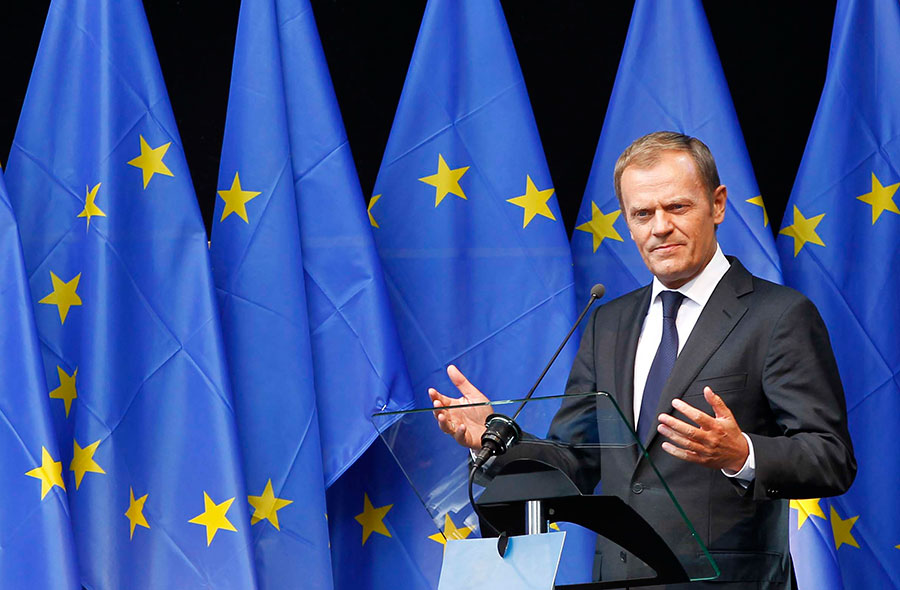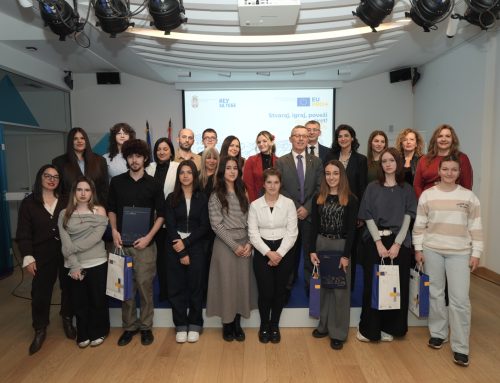Following Prime Minister Borissov’s kind invitation, we will meet in Sofia tomorrow for an informal working dinner ahead of the EU-Western Balkans Summit. As planned, our discussion will focus on innovation and the digital economy – two themes of strategic reflections under the Leaders’ Agenda. The enclosed Note outlines the main issues at stake to guide our discussion. You will be invited to reflect on two questions: What should be done at the EU level to support and boost breakthrough and disruptive innovation? How can the EU become a major player in the field of big data? This will be an open debate, without written conclusions at this stage. However, as always, it will help to steer the European Council decisions in June.
During our meeting, we will also reflect on recent global developments, in particular following President Trump’s announcements on Iran and trade as well as the latest, dramatic events in Gaza.
As regards the US decision to withdraw from the Iran nuclear deal, I will ask the three leaders who are signatories to the agreement, that is Prime Minister May, Chancellor Merkel and President Macron, to present their assessment of the situation following the US withdrawal. I would like our debate to reconfirm without any doubt that as long as Iran respects the provisions of the deal, the EU will also respect it. This is the line already discussed by our foreign ministers and presented by the United Kingdom, Germany and France, who are working hard to sustain the deal. We should also get an update from High Representative Mogherini, while President Juncker will share his thoughts on how the interests of the European companies engaged in economic cooperation with Iran can be best preserved.
When it comes to the US trade measures, President Juncker will debrief us on the state of play. As we know, the US tariffs on steel and aluminium cannot be justified on the grounds of national security. This is why we agreed in March to call for the permanent exemption of the EU from these tariffs and strongly supported the steps taken by the European Commission to ensure that the interests of the EU are fully protected. This includes the possibility to respond to the US measures as appropriate and in a proportionate manner, in compliance with the World Trade Organisation rules. While recalling the European commitment to strong transatlantic relations as a cornerstone of the security and prosperity of both the United States and the European Union, we also underlined our support for dialogue on trade issues of common concern. Tomorrow night I will propose we stick to our guns. Our renewed and full support for the European Commission will strengthen its position in the negotiations with the US. This is the only way to protect European interests. It is clear that it is not the EU that is putting transatlantic trade relations at risk. But we need to be sure that we have done everything in our power, and within the limits of the international trade rules, to avoid a negative scenario.
The following day, we will meet our Western Balkan partners collectively for the first time in 15 years. After my recent trip to the region, I am convinced that the EU is the only partner that cares genuinely about the stability of the entire region and a prosperous future for its peoples – as opposed to treating it as a geopolitical game of chess, in which the people are pawns. The European perspective for the Western Balkans should remain a firm commitment on both sides. But apart from the political declarations about the future, we must demonstrate that we care about the economic development of the Western Balkans here and now. Investing in infrastructural and human connections with and within the Western Balkans region is in the EU’s best interest. And the objective of our summit is to prove it.




